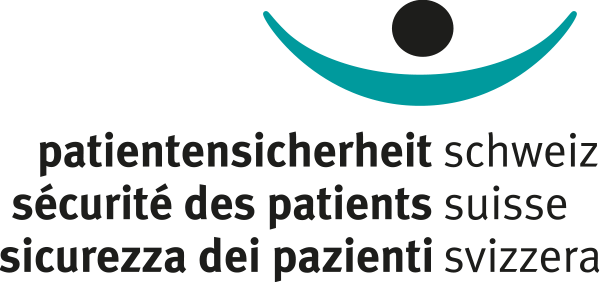
Diseases of the Oesophagus, Stomach and Duodenum, including Tumours
Do you have any questions? Benefit from personal advice on second medical opinion and choice of hospital:
+41 41 228 09 94
From the mouth, minced food reaches the stomach through the oesophagus. There, the chyme is cleaned of possible pathogens with the help of acid, and then further digested by enzymes. In the first section of the small intestine, which is called the duodenum, further digestive enzymes are subsequently added to the chyme. In part, these enzymes come from the pancreas, and in part from the gallbladder.
Many causes and mechanisms for the development of diseases of the oesophagus, the stomach and the duodenum are not fully understood. There are, however, known factors that increase the risk of a disease:
-
Combination of tobacco and excessive alcohol consumption
-
Increased reflux of gastric and bile acid (gastroesophageal reflux disease, or GERD)
-
Chronic bowel inflammation
-
Unhealthy eating habits over years (for example, foods rich in fat and sugar, spicy or hot, smoked or salted meat, too few fruits and vegetables)
-
Persistent stress and lack of exercis
-
Family or genetic predisposition
Your guides:
Your checklist:
Further information:
Usually, diseases of the oesophagus, stomach and duodenum do not cause discomfort as long as the digestion works well.
The family doctor is responsible for the treatment of gastroesophageal reflux disease, where gastric acid flows into the oesophagus. The different forms of cancer are treated in the hospital.
Gastroesophageal reflux disease is a widespread disease. Between 30 % and 40 % of the adult population regularly suffer from heartburn and the regurgitation of acid gastric contents. This can also damage the mucous membrane in the stomach or duodenum. Most patients are satisfied with the prescribed medications and are adequately treated.
-
Some patients continue to take such medications even though the disease has subsided, and treatment is no longer necessary. However, long-term use of such acid blockers increases the risk of osteoporosis and intestinal infections. Ask your doctor at the next consultation if the treatment is still necessary.
-
Surgical intervention should only be considered if the medication is inadequate, if a lot of fluid flows from the stomach back into the oesophagus or even into the mouth, or if you cannot tolerate the medication well.
Your guides:
Your checklists:
Further information:
It is known that the best results in the operation and treatment of a disease are achieved in hospitals with a high number of cases. Whether an operation can be performed depends mainly on the type and stage of the disease.
CONCORDIA has commissioned the institute B,B,S. Economic Consultants in Basel to evaluate the treatments and operations of cancer of the oesophagus or stomach in all Swiss acute care hospitals – independently, neutrally, and according to statistical quality criteria.
The quality of inpatient treatment was assessed, along with the length of stay and the hospital costs.
-
During a personal conversation, we will show you, on the basis of the results, which hospitals throughout Switzerland have excelled over the years in the treatments and operations of cancer of the oesophagus or stomach in terms of quality and efficiency.
-
Use our consulting offer to find out which hospital is most suitable for your treatment.
-
Naturally, you still have the choice of when and where you would like to be treated, in line with your basic and supplementary insurances.
Tumour board: Collective knowledge
A tumour board is a committee that brings together specialists from various medical disciplines to discuss the clinical situation of patients suffering from cancer and to set up an optimal treatment plan.
In addition, for operations and treatments of oesophagus, stomach and duodenum, we recommend a second medical opinion. This way, you can learn about additional treatment options. If you are covered by a hospital insurance at CONCORDIA, a second medical opinion is free of charge if you apply for it via the Lucerne Cantonal Hospital (LUKS).
Exactly what form rehabilitation and aftercare will take after a cancer operation in the hospital depends on the treatment, the prognosis and your state of health.
A return to a normal diet as well as physical recovery and rehabilitation are in the foreground, but the psychological stress must be processed. Pain or nausea may still be present after an operation. In most cases, they can be alleviated with dietary adjustment and medication.
Further key aspects of aftercare are:
-
Outpatient oncological follow-up checks with therapy recommendations from conventional medicine, and possibly from complementary medicine or palliative care
-
Possible rehabilitative measures to maintain or support your physical and psychological health
-
Medication to support the digestive function and nutrient utilisation
-
Living with a chronic illness requires very good self-management in order to be able to successfully master the various challenges in everyday life. concordiaCoach can support you in finding good solutions.
-
Get vaccinated against influenza in good time before the flu season. The best time is between mid-October and mid-November.
Your guides:
Further information:
Give us your feedback: What experiences have you had with the CONCORDIA Health Compass? Do you have questions about using it?
What suggestions do you have for us? Or maybe you didn't find what you were looking for?
Call us on +41 41 228 09 94. Or write your message to healthcompass@concordia.ch.
We would be happy to provide further assistance.




